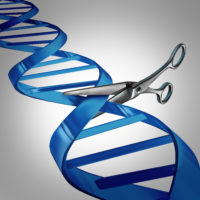An influential science advisory group formed by the National Academy of Sciences and the National Academy of Medicine on Tuesday lent its support to a once-unthinkable proposition: clinical efforts to engineer humans with inheritable genetic traits.
In a report laden with caveats and notes of caution, the group endorsed the alteration of human eggs, sperm and embryos — but only to prevent babies from being born with genes known to cause serious diseases and disability, only when no “reasonable alternative” exists, and only when a plan is in place to track the effects of the procedure through multiple generations.
Human genetic engineering for any reason has long been seen as an ethical minefield. Many scientists fear that the techniques used to prevent genetic diseases might also be used to enhance intelligence or create humans physically suited to particular tasks, like soldiers.
Just over a year ago, an international group of scientists declared that it would be “irresponsible to proceed” with making heritable changes to the human genome until the risks could be better assessed and until there was “broad societal consensus about the appropriateness” of any proposed change.
Because any genetic changes in human eggs, sperm and embryos, also called the germ line, can be passed on to future generations, the recommendation crosses a line that “many have viewed as ethically inviolable,” the report acknowledges.
But in the last year, the report’s authors said, the techniques required to perform this sort of gene editing have passed crucial milestones that have forced ethical considerations to the fore.
“Previously, it was easy for people to say, ‘This isn’t possible, so we don’t have to think about it much,’” said Richard Hynes, a cancer researcher at the Massachusetts Institute of Technology, who was one of the leaders of the committee that wrote the new report.
“Now we can see a path whereby we might be able to do it, so we have to think about how to make sure it’s used only for the right things and not for the wrong things,” he said.
by Amy Harmon, New York Times, February 14, 2017
Click here to read the entire article.
The post Human Gene Editing Receives Science Panel’s Support appeared first on Time For Families.
Source: Time for Families

